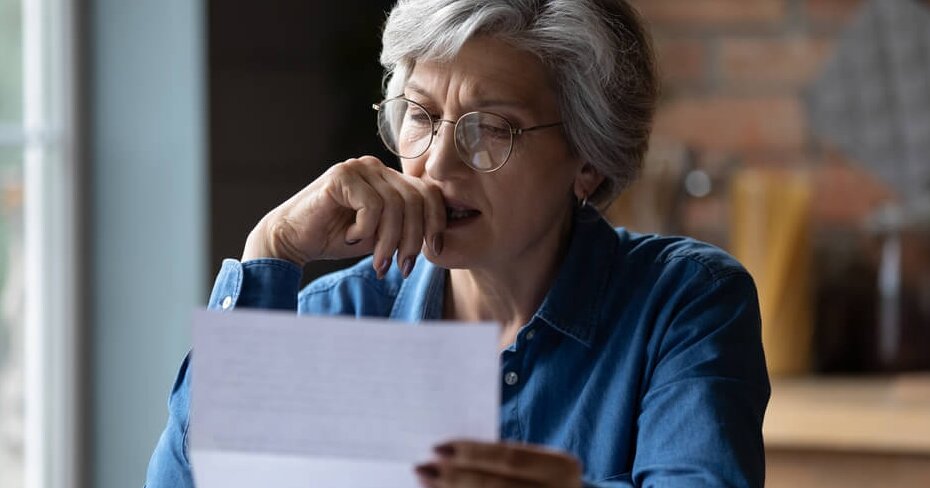So, you've inherited a home. Now what?
By: Sandra MacGregor on April 4, 2024
Inheriting a home in Canada can be life-changing occurrence, one that is fraught with sadness (it means you’ve likely just lost a loved one), stress and even possibly excitement (it may be your first home).
No matter the situation, inheriting a property comes with a complex series of financial and legal steps that can be very overwhelming. Whether you're dealing with probate fees, figuring out how to handle a reverse mortgage, or contemplating selling versus keeping the property, each step comes with its own set of challenges and considerations.
This article will highlight some of the key considerations to keep in mind when inheriting a property, as well as give you the knowledge and tools to make informed decisions about what can be a life-altering situation.
At a glance:
Fees and the Probate Process
Two of the largest concerns for someone inheriting a property are often potential fees and the complexities of the probate process.
What fees are involved with inheriting a home?
The good news is that, aside from getting home insurance once you take possession of the house, there are no set costs (though in some cases there may be capital gains tax; more on that possibility below).
“As a general rule, the cost to a beneficiary of getting an inheritance is covered by the estate,” explains Lynne Butler, estates lawyer at Butler Wills and Estates.
That means, she says, any legal or probate fees involved with a house inheritance would be covered by the estate and not the person getting the house. Applicable capital gains that are payable by the deceased owner should also be covered by the estate, rather than the beneficiary.
The probate process
Probate is the legal process that confirms the will's validity so that the executor can distribute the deceased's assets (including any property). Property will only be issued once the will is probated. It’s up to the executor to apply for probate, which involves submitting the will and an inventory of the deceased's assets to the court.
The process can take several months to over a year, depending on the estate's complexity and the province or territory in which they live. You can only take full possession of the house once probate is completed.
Inheriting a home with diminished equity
Sometimes you don’t just inherit a home. What if the property you inherit comes with a reverse mortgage or a home equity line of credit tied to it?
Reverse Mortgages
A reverse mortgage allows homeowners aged 55 and above access their property’s equity without selling it. The balance of the loan, including interest, is only due when the borrower moves, sells the home, or passes away.
When inheriting a home in Canada with a reverse mortgage, your first course of action will be to settle the loan with the bank. To do so, you generally have three main options.
If you have the capital (or can get a loan to cover the cost or have a home already and therefore can get a mortgage), you can simply pay the bank the balance due and take possession of the home.
You can sell the property and pay back the bank with the proceeds.
Lastly, if selling the property wouldn't cover the amount owing, you can turn over the home to the lender.
Read more: What is a reverse mortgage and how does it work in Canada?
Home Equity Line of Credit (HELOC)
Properties with a HELOC are similar to those with a reverse mortgage in that the outstanding balance must be paid off. You can either pay off the loan with your own funds or you may have to sell the property to cover the debt.
Do you have to pay capital gains tax if you want to sell the home?
In Canada there is no inheritance tax, so you shouldn’t have to worry about paying a capital gains tax unless you decide to sell the property.
Butler says that there would be no capital gains tax owing with inheriting a property in and of itself, especially if the beneficiary or another member of the immediate family is living in the home.
“This is because the property would qualify as the beneficiary's principal residence, which passes tax-free when the owner sells it or gives it under his will,” she explains.
However, if the beneficiary is not living in the home and decides to sell, “there is a definite chance of capital gains tax liability arising,” Butler says.
“If the property is a second home such as a cottage, or if the property is being rented out, then it is not the principal residence and does not qualify for tax-exempt status.”
What if you want to keep the home?
Even if you decide to keep the home, there are some important factors to consider.
If you choose to keep the home, either to live in or rent out, you may want to access the property's equity for renovations. However, you won’t be able to access the home’s equity until you officially take possession.
“A beneficiary who receives a house can keep it as either a residence, a cottage or a rental property,” says Butler. “However, I would never advise an executor client of mine to give a beneficiary access to the equity for renovations or for any other purpose until the house is actually transferred to the beneficiary.”
Once the beneficiary has legal ownership of the property, they’ll be able to get a mortgage or line of credit, she adds. That’s when renovations can take place.
Related: The best home renovations that pay off at resale
On selling to (or buying from) your sibling
If you’re hoping to buy the home from siblings who are also heirs, it’s again worth keeping in mind that you won’t be able to get a mortgage until you take possession of the home.
If you need to borrow money to buy them out, you’d need to already own a home to get a mortgage on your fully owned property, or failing that, get a personal loan from a bank.
As lawyer Neil Milton, of Ontario-based Miltons Estates Law, succinctly puts it, “Once a beneficiary receives an asset from the estate, it is usually theirs free and clear and treated like any other asset of theirs. Before then, however, it is not theirs, and is an asset of the estate.”
Butler also adds that if a sibling does buy a property from other heirs, it’s vital that it be purchased at fair market value.
“Often a sibling thinks they should get a deal since they are buying the family home. However, doing this would mean that the executor is favouring the purchasing sibling over the selling siblings, so it should not take place.”
Read next: What happens to your mortgage after you die?


